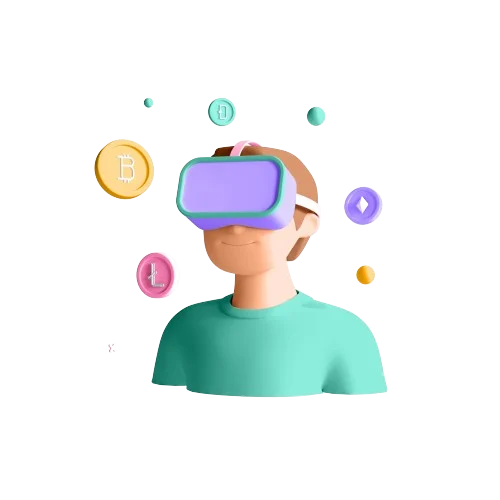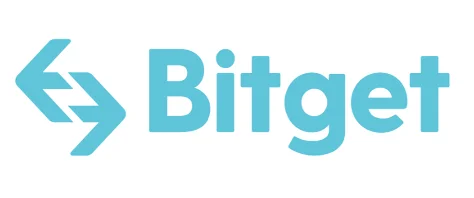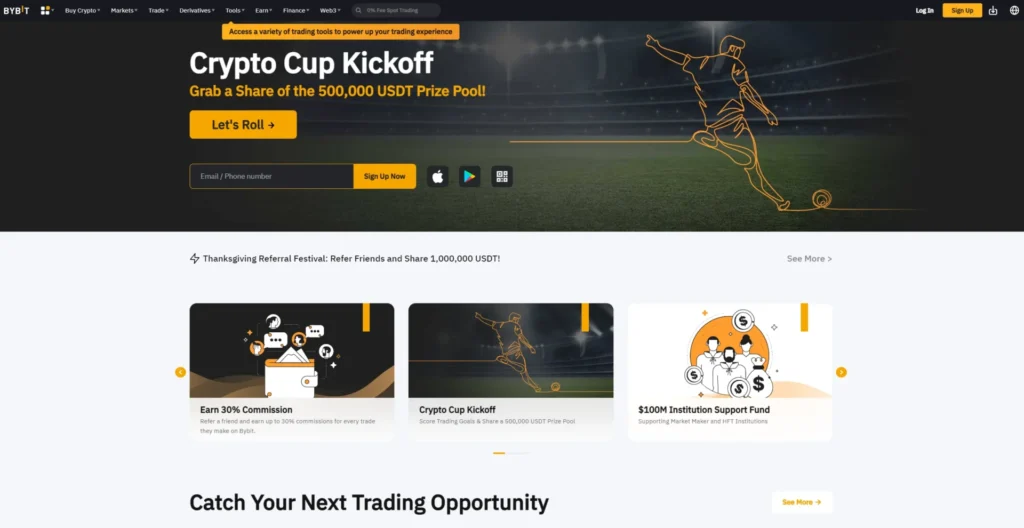Days
Hours
Minutes
Seconds
Read reviews, comparisons, and guides about crypto exchanges, wallets, and cryptocurrencies to get ahead of the market.

Cryptocurrency trading platforms form the crucial bridge between you and your profits. Whether you’re interested in Bitcoin, Ethereum, Cardano, or any other cryptocurrency, you need to find a suitable crypto exchange that meets your requirements.
On cryptowinrate.com, you will not find reviews from researchers but from actual traders who have experience in the market. We have thoroughly tested and reviewed over 150 crypto trading platforms. If you are looking for a review of a specific exchange, you can search for it in the search bar above.
Below, you will find a quick overview of our top Cryptocurrency exchanges for 2024. We went through all the important details, which you can find in the full review. Scroll through and see what suits your needs best!

620+
200x
0.02/0.05

1700+
200x
0.01/0.05
550+
100x
0.02/0.055

580+
125x
0.02/0.06

350+
125x
0.02/0.05
MEXC Global is one of the biggest cryptocurrency exchanges. With 1700 cryptos to trade and a daily trading volume of over $10 billion, it is safe to say that MEXC is a top-tier exchange.
MEXC attracts users from all over the world with its competitive fees which even go as low as 0% on spot and futures taker fees. That means you can buy and sell crypto currencies without losing a single penny to trading fees. Since December 1st, 2022, MEXC is the first and only major cryptocurrency exchange to offer 0% maker fees on the futures market. This is very big news as it revolutionizes futures trading. MEXC is now officially the crypto exchange with the lowest fees in the market.
In 2022, the term quantitative trading is getting more and more popular. MEXC offers advanced options for traders that are interested in setting up trading bots. But trading bots are not the only way to make passive income on MEXC. MEXC Global even offers copy trading. You can browse through the top traders and with a few mouse clicks you can easily set up automated copy trading. If you want to learn more about MEXCs copy trading, you can check out our MEXC copy trading guide.
On some crypto exchanges, you require to do an ID verification or KYC (Know-Your-Customer) which goes strictly against the value of cryptocurrencies: Anonymity. On MEXC you can trade without KYC and you have a daily withdrawal limit of $400.000. That means only if you want to send and receive over $400.000 daily you must finalize your KYC, otherwise, you are perfectly fine to not do your KYC on MEXC.

MEXC is a global cryptocurrency exchange that offers everything you need for successful trading. You can buy and sell cryptos without fees on the spot market and you can trade crypto futures with low fees and high leverage of up to 200x for major currency pairs like Bitcoin. MEXC is a market leader when it comes to the futures market. With high liquidity and high offered leverage, it is safe to say that experienced traders will have a great time trading on MEXC. If you are new to trading you can also place orders as low as $1 for practicing and slowly working your way up. If you don’t have any capital to trade yet, you can use MEXCs free “Demo trading” option which allows you to trade the futures market in real-time on a demo account without real money. This can also be great for testing new strategies without having to worry about losing capital, in case the strategy turns out to be not the best.
BitGet is a cryptocurrency exchange platform that offers a simple way to trade over 500 cryptos. It was established in 2019 and has since grown to be one of the most popular crypto exchanges. In this section, we will look at the key features of BitGet, its advantages and disadvantages, and how it compares to other cryptocurrency exchanges.
BitGet offers users a variety of features that make trading cryptocurrencies easier. These include 24/7 customer support, advanced charting tools, real-time market data, margin trading, spot trading, futures trading, mobile app support, and more. The platform also provides users with a secure wallet service that allows them to store their digital assets safely and securely.
The main advantage of using BitGet is that it is easy to use while offering advanced features. The interface is intuitively designed so that even novice traders can quickly get up to speed on how to trade on the platform. Additionally, it offers low fees for both deposits and withdrawals which makes it attractive for traders who want to maximize their profits.
Lastly, BitGet has strong security measures in place such as two-factor authentication which helps protect user funds against hackers or malicious actors. On top of that, Bitget has a $400,000,000 security fund to protect its users

In conclusion, BitGet is an excellent cryptocurrency exchange platform for those who are looking for an easy-to-use interface with low fees and strong security measures in place. It offers a wide range of features such as advanced charting tools and spot/futures trading options that can help you stay informed about changes in prices or trends in order flow activity so you can make better decisions when placing trades.
However, it does lack some features such as higher leverage ratios for margin trading which may be inconvenient depending on your needs as a trader. Nevertheless, overall we believe that BitGet is worth considering if you are looking for a reliable cryptocurrency exchange platform with great features and strong security measures in place.
Upon researching hundreds of online providers for cryptocurrencies, we found that Binance is one of the best trading platforms to consider. First and foremost, the exchange is perfect if you are just starting in the world of online crypto trading. This is because the platform is really simple to use and it supports small stakes. You can start trading with as little as $1.
In 2023 there is no way of working in the crypto space and not knowing about Binance. With millions of active users, Binance is the biggest cryptocurrency exchange, attracting users from all over the world. But why is Binance such a big success and is it reasonable? We thoroughly investigated Binance and will show you everything that you need to know in this review! We will cover everything about fees, payment methods, security, use cases, customer support, and more.
Binance is an all-in-one trading platform for cryptocurrencies where you can store your cryptos and trade the spot and futures markets.
Supported payment methods for deposits at this top-tier cryptocurrency trading platform include Debit/Credit cards, google and apple pay, and more. You can also onramp 46 different FIAT currencies, including USD, EUR, GBP, AUD, and AED, via bank transfers or debit/credit cards depending on your location.

Unfortunately, Binance is not a global exchange and only offers a very limited service to US citizens which can really hinder your success in cryptocurrency trading. For US citizens, MEXC is the better option to go with if you want a reliable exchange with all the features you require. Check out our full review of MEXC here and the MEXC website here. If you still want to trade on Binance as a US citizen, check out our review for Binance.us here and you can visit the website of Binance.us here.
ByBit’s main focus is its derivatives market with exceptionally high liquidity. This means that it can handle large orders without significantly affecting the price of an asset, making it perfect for institutional investors who need to move large amounts of money quickly and easily. The exchange also offers a range of currency pairs, including Bitcoin/USDT, EOS/USDT, XRP/USDT, ETH/USDT, and BTC/USD perpetual contracts.
ByBit also stands out from other exchanges due to its very competitive fee structure. When trading perpetual contracts (which are used to speculate on future market movements), traders have access to a 0.06% maker fee and a 0.01% taker fee—among the lowest fees in the industry. Additionally, ByBit users can benefit from up to 125x leverage when trading perpetual futures contracts.
Finally, ByBit also excels when it comes to execution speeds—it processes more than 1 million transactions per second without any lag or slippage whatsoever. This makes it ideal for traders who need lightning-fast execution times in order to profit from short-term price movements in volatile markets like cryptocurrencies. Additionally, ByBit also uses advanced technologies such as WebSocket API connections which provide real-time data streaming for over 100 different symbols across multiple exchanges.

ByBit’s main focus is its derivatives market with exceptionally high liquidity. This means that it can handle large orders without significantly affecting the price of an asset, making it perfect for institutional investors who need to move large amounts of money quickly and easily. The exchange also offers a range of currency pairs, including Bitcoin/USDT, EOS/USDT, XRP/USDT, ETH/USDT, and BTC/USD perpetual contracts.
ByBit also stands out from other exchanges due to its very competitive fee structure. When trading perpetual contracts (which are used to speculate on future market movements), traders have access to a 0.06% maker fee and a 0.01% taker fee—among the lowest fees in the industry. Additionally, ByBit users can benefit from up to 125x leverage when trading perpetual futures contracts.
Finally, ByBit also excels when it comes to execution speeds—it processes more than 1 million transactions per second without any lag or slippage whatsoever. This makes it ideal for traders who need lightning-fast execution times in order to profit from short-term price movements in volatile markets like cryptocurrencies. Additionally, ByBit also uses advanced technologies such as WebSocket API connections which provide real-time data streaming for over 100 different symbols across multiple exchanges.
KuCoin is an international cryptocurrency exchange based in Hong Kong that was founded in 2017. It supports a wide variety of coins, including Bitcoin, Ethereum, Litecoin, Dogecoin, and more than 200 other altcoins. The platform also provides users with access to over 400 trading pairs across multiple markets.
In the crypto market, it is not uncommon to see 100x gains during a bull market, but the hard part is figuring out which coin will do this. KuCoin is a market leader when it comes to listing new high-quality projects with a lot of upside potential. KuCoin lists many top gainers early on – often much earlier than the competition. That is why KuCoin is known as one of the best Altcoin gem exchanges.
You can also use KuCoins’ unique features that set it apart from other exchanges such as margin trading and cross-chain transactions. In addition, they offer a host of promotions such as loyalty rewards points (KCS) that incentivize users to trade more often on the platform and lower the fees when using the native token from KuCoin. Finally, they have one of the fastest withdrawal speeds in the industry (as little as 10 minutes in many cases). With all these factors combined, it’s no wonder why KuCoin has become one of the most popular crypto exchanges around today!

In conclusion, there are many reasons why KuCoin stands out from its competitors when it comes to cryptocurrency trading platforms – from its competitive fee structure and intuitive user interface to its unique features and fast withdrawal speeds – making it an ideal choice for both novice and experienced traders alike. One of the best things about KuCoin is the selection of altcoin projects during their early phase, which means a lot of upside potential. Whether you’re looking for a reliable exchange or just starting out in the world of cryptocurrencies, give KuCoin a try today! You won’t be disappointed!
For most countries, MEXC is the best cryptocurrency trading platform for 2023, due to its low fees, wide range of tradable coins in the spot and futures market, and great security and features. Binance comes in second as it has many limitations depending on where you live. While many European citizens can not access the futures market on Binance, US citizens can’t access binance at all and must use their native service “Binance US” which is even more limited.
Binance has a separate service for citizens from the USA. Binance.com is their global service while Binance.us is their exchange for US citizens. Unfortunately, we do not recommend using Binance.us as it is lacking many features which Binance.com does have. MEXC.com is another popular option for US citizens and offers a lot more features for its users which is also the reason that MEXC is ranked 1 on our list.
Some trading platforms require you to upload your ID so they can verify your account and ensure you’re not underage. Binance is a highly regulated exchange, thus requiring you to verify your identity called “KYC” (Know your customer). If you are looking for an exchange without KYC requirements and without limitations we recommend MEXC and BingX.
First of all, there is no upfront fee for crypto trading. However, you will pay fees on your trades. Fees vary a lot depending on the market and exchange you trade on. Some trading platforms like Binance, MEXC, or BitGet allow you to trade most cryptocurrencies with 0% fees on the spot market. MEXC now even offers 0% spot fees and 0% maker fees on the futures market which is a very big deal.

Tools
Passive Income